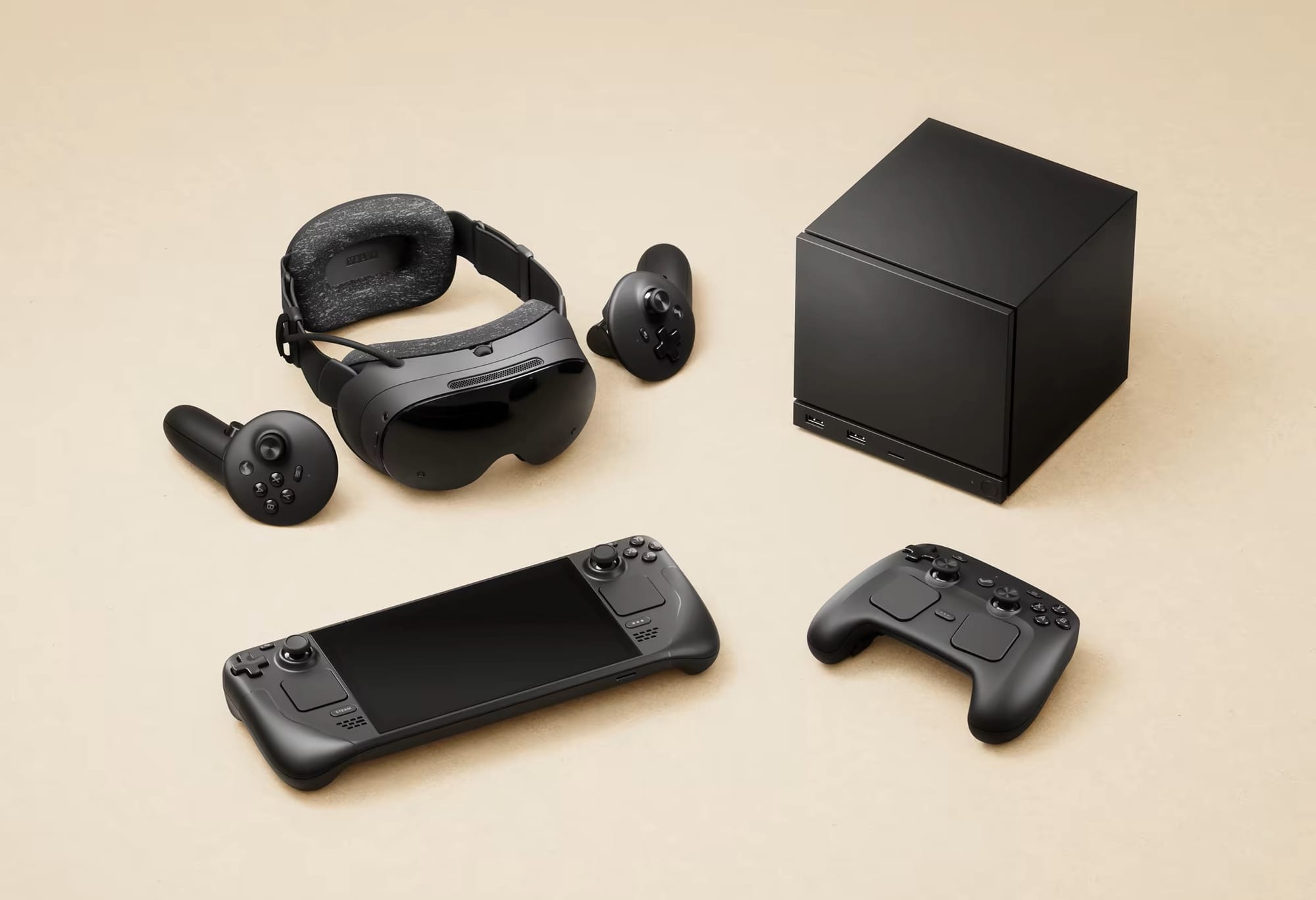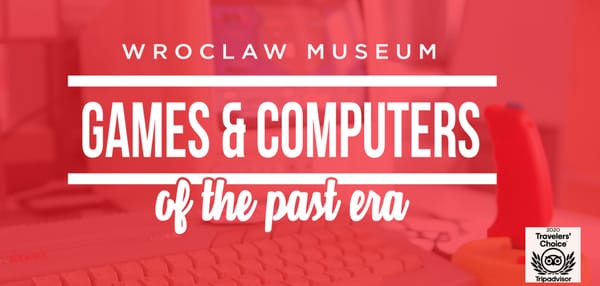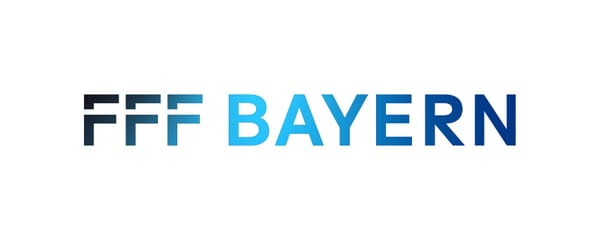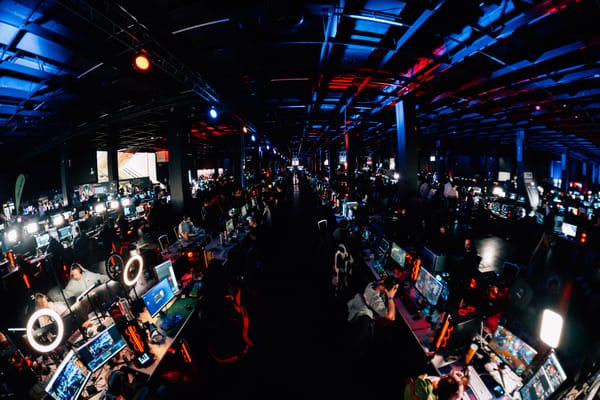The Steam Hardware Ecosystem and It's Secret Sauce
A controller. A mini PC. A VR headset. Valve has announced a huge expansion to the Steam Headware ecosystem. Everything is compatible with each other. Everything is a PC. And none of it runs on Windows. A commentary by Marcel Kleffmann.


On an ordinary Wednesday, Valve Software announced the expansion of the Steam hardware ecosystem without much fanfare. Three devices were unveiled: a controller, a small gaming PC for the living room (aka 'Gabecube'), and a new VR headset. Valve's hardware has traditionally been niche - including the Steam Deck, but the deck altered the landscape, making handheld PC gaming a thing.
Their first controller was experimental. The Steam Machines were hardly popular ten years ago. Their first VR headset (Index) was aimed at enthusiasts. Now, three new iterations have been introduced. The Steam Controller works in the same way as a Steam Deck, but without the Deck itself. It can be paired with all devices in the ecosystem. As a gaming PC for the living room, the Steam Machine is likely to perform similarly to the PS5 and Xbox Series X, but it has more CPU power, a better architecture, and upscaling options (FSR) for 4K gaming. The Steam Frame, on the other hand, is a standalone VR headset designed primarily for streaming. It is also noteworthy that Valve Software is launching a new VR headset at a time when the XR market is experiencing a general lack of interest. Steam Frame competes with the Meta Quest 3 and comes with an ARM processor (Snapdragon 8 Gen 3) that is usually used for mobile devices. Thanks to a translation layer, it can also play classic x86 PC games. "This is already fully open source, so you could download it and run SteamOS, now that we will be releasing SteamOS for Arm, you could have gaming on any Arm device," said Jeremy Selan, an engineer at Valve, in an interview with PC Gamer. The impact that SteamOS will have on ARM devices remains to be seen, given that current smartphones and tablet computers, as well as Nintendo's Switch 1 and 2, use ARM processors. However, the potential here is also enormous.

Everything in this Steam ecosystem runs on the Linux-based operating system, SteamOS – and that's the key point: an operating system specially designed for gaming that can run on different types of devices, offering a console-like interface and a desktop environment as well (KDE Plasma). Unlike Windows, it's not a jack-of-all-trades operating system. And since the Steam Machine is a PC, you can install a different operating system if you wish.
Valve Software wants to detach PC gaming from Windows and open it up. However, not all games will run on SteamOS. This mainly applies to titles that use anti-cheat systems for multiplayer or their own launchers. But, PC gaming will be opened up to alternative operating systems and architectures. This will give players and developers more freedom and flexibility, and challenge the dominance of Windows. Valve is therefore adopting the motto that Microsoft has been promoting for years: Play your games where and how you want. Ultimately, we'll have to wait and see how things pan out in terms of availability, price, performance, OS functionality and so on. But if Valve continues to improve the new Steam ecosystem in the same way that it has improved the Steam Deck since its launch, it is likely to gain many fans.
While Valve is unlikely to match the popularity of the PlayStation or Switch, it will offer an appealing alternative in the PC sector. This is particularly significant given that the next Xbox is also expected to be a Windows-based PC. Another significant advantage of Valve's hardware ecosystem is access to the extensive Steam library and social features on these devices. And there is already a large audience. According to Steamworks, the number of active users on Steam every month is 132 million.
It will also be interesting to see how other manufacturers respond, especially to the Steam Machine. After all, the release of the Steam Deck prompted numerous other manufacturers to produce PC gaming handhelds, including the ROG Ally, a collaboration between Microsoft and Asus. While many of these handhelds had superior hardware, they all had one weak point in common: Windows. Consequently, other hardware manufacturers could release products inspired by the Steam Machine that use SteamOS.
The Steam Hardware ecosystem is, without doubt, the most exciting development in (PC) gaming in recent years. And if you look at the reactions to the announcement video on Valve's YouTube channel, the message is clear: 384,000 likes from 2,6 million views in 21 hours. Very impressive.






